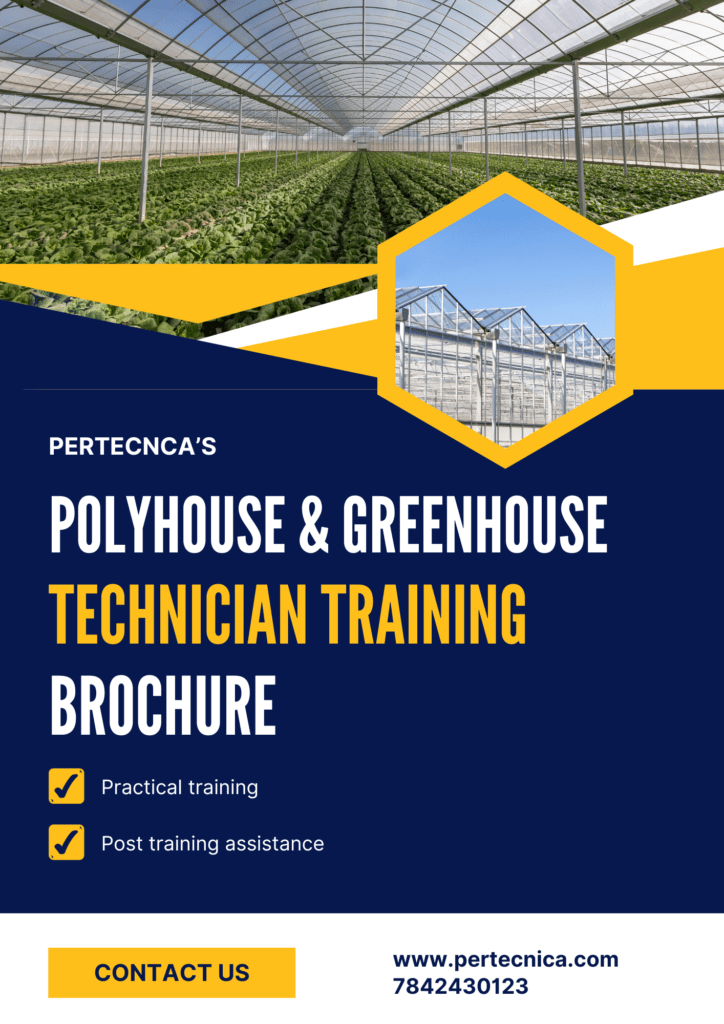Polyhouse and Greenhouse Technician
Advance your agricultural career with our Polyhouse and Greenhouse technician training. This Shade House Technician training course is designed to provide you with the skills and knowledge necessary to construct, maintain, and manage polyhouses, greenhouses, and shade houses. As a technician, you will learn about the different structures, environmental controls, and crop management techniques to enhance productivity and crop quality in controlled environments.
Course summary:
Our Polyhouse and Greenhouses Technician training course offers comprehensive training in the construction, maintenance, and management of controlled environment structures. You will gain practical knowledge and skills to enhance crop production and quality through effective use of polyhouses, greenhouses, and shade houses. The course focuses on modern technologies and sustainable practices to ensure efficient and eco-friendly farming.
- Detailed training in the design and construction of controlled environment structures
- Effective environmental control and management techniques
- Advanced crop management strategies for polyhouses and greenhouses
- Practical knowledge of soil, substrate, and irrigation systems
- Techniques for pest and disease management in controlled environments
Practical training
- Hands-on experience in designing and constructing polyhouses, greenhouses, and shade houses
- Practical training in installing and maintaining environmental control systems
- Real-time projects on crop management in controlled environments
- Workshops on soil, substrate, and irrigation management
- Case studies on successful polyhouse and greenhouse projects
- Field visits to operational polyhouses and greenhouses
- Training in the use of technology for environmental control
- Projects on sustainable and eco-friendly farming practices
Career scope
Upon completing the Polyhouse and Greenhouse technician training course, graduates can explore career opportunities in various sectors, including:
- Commercial farms and agricultural enterprises
- Horticultural companies
- Agribusiness companies
- Agricultural consulting firms
- Government agricultural departments
- Research and development institutions in agriculture
- Non-governmental organizations focused on sustainable farming
- Landscaping companies
- Agritech companies
- Educational institutions offering agricultural courses

